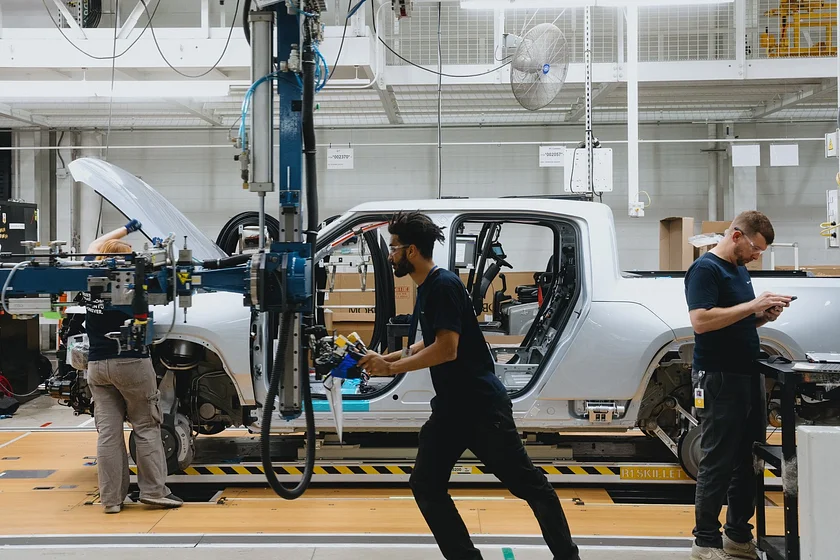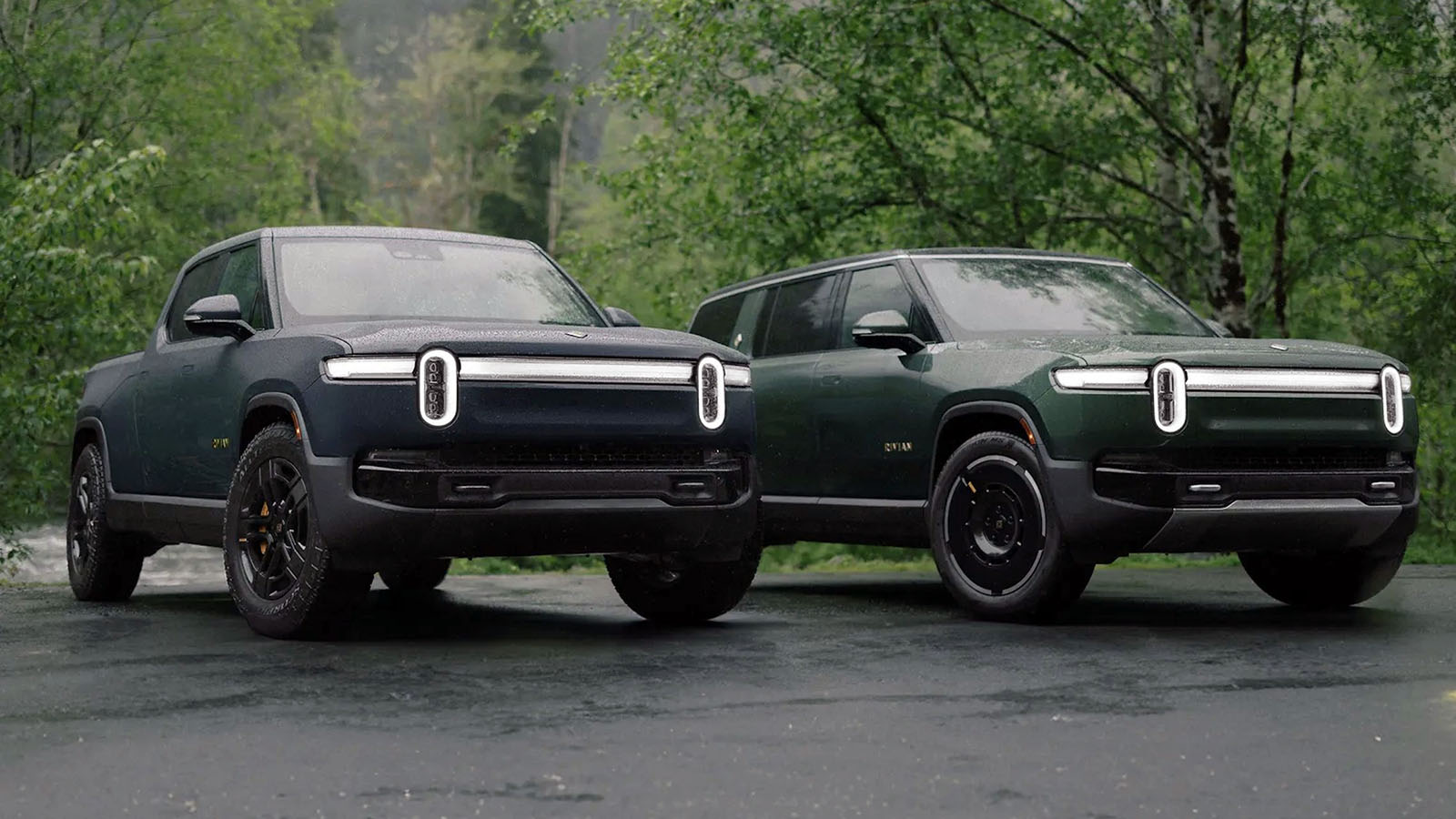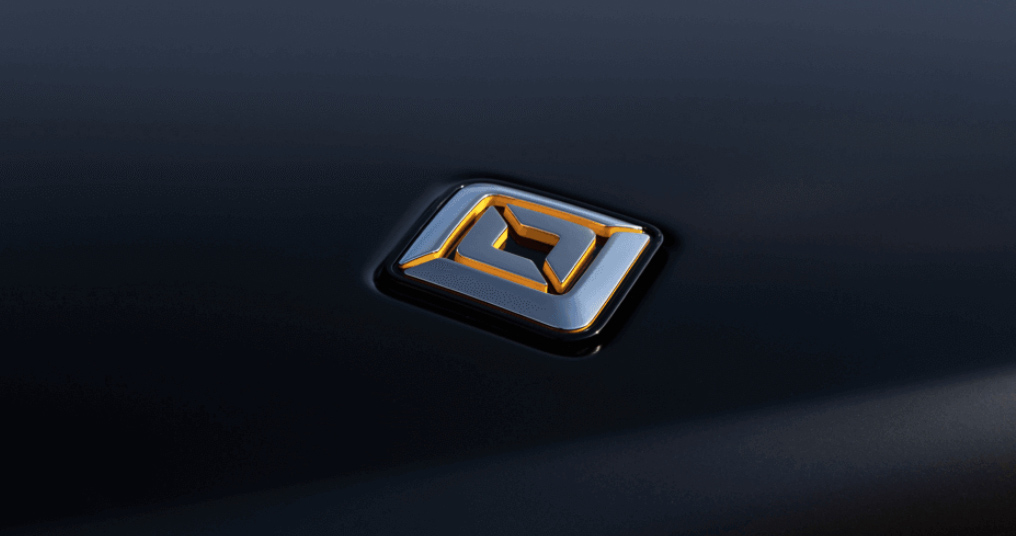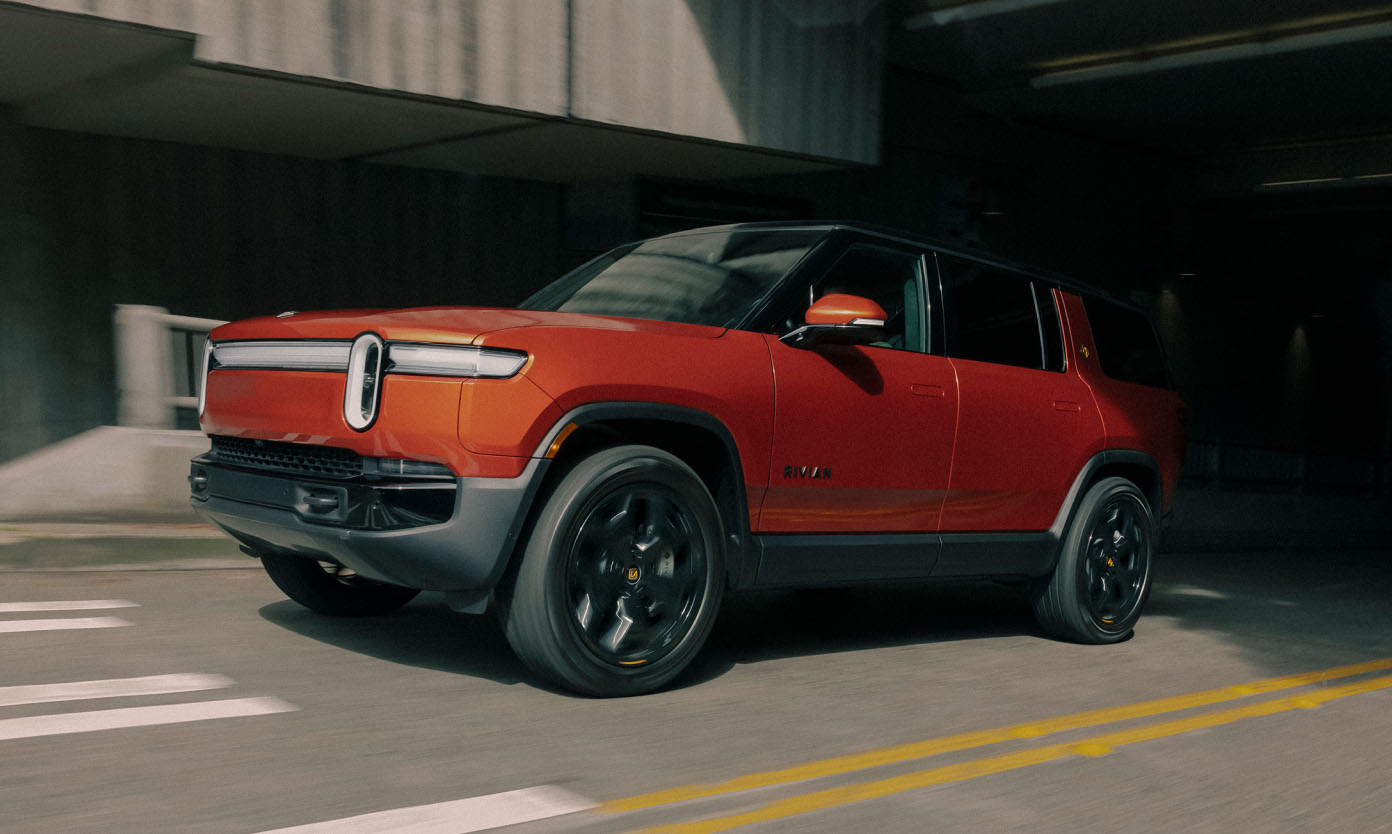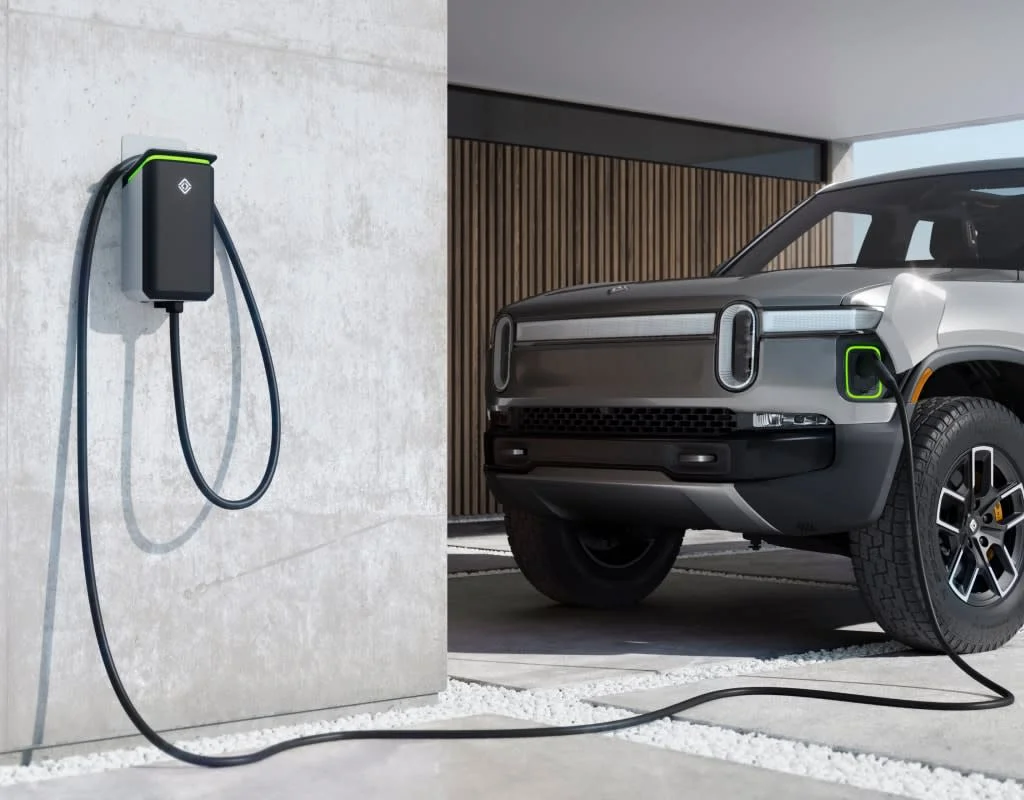Rivian has unveiled its latest generation of the R1T pickup and R1S SUV, alongside significant cost-saving efforts following the retooling of its Illinois factory, according to CEO RJ Scaringe.
During a media tour of Rivian’s Illinois factory, Scaringe told Reuters that the retooling has led to a 35 percent reduction in materials cost for its Amazon delivery vans, with similar savings across its other production lines.
The Illinois factory was shut down in April for approximately 25 days for retooling.
See also: Rivian R1T Sets New Production Truck Record at 2024 Pikes Peak International Hill Climb
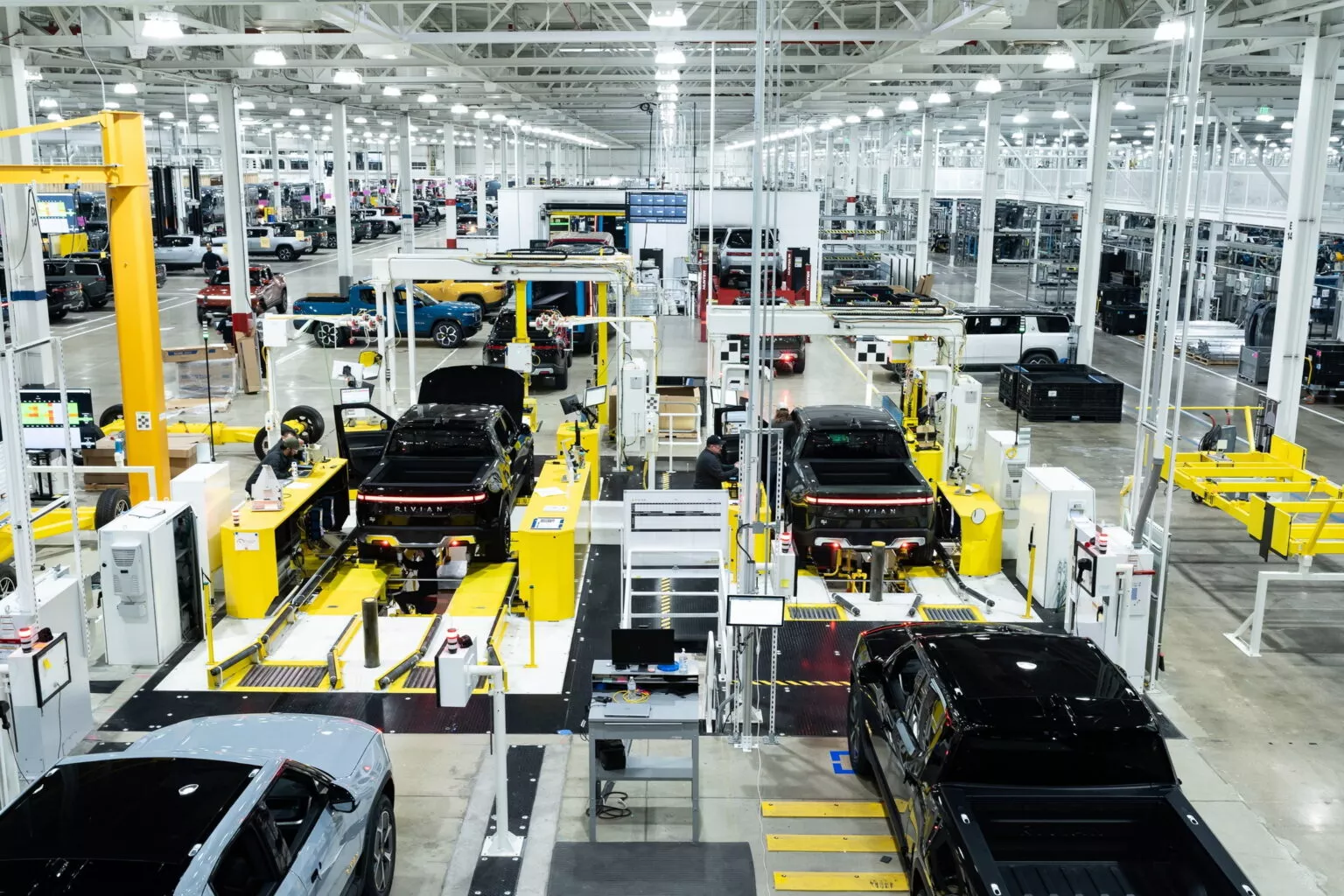
Scaringe stated that over 100 steps in battery production have been eliminated, along with the removal of 52 pieces of equipment from the body shop, and over 500 from the updated R1T and R1S design. These measures, along with design simplifications, are aimed at making Rivian profitable, with Scaringe noting that the costs to build its EVs have “improved dramatically.”
“We did a similar process of really going through and redesigning a number of components for cost, so we took over 35% of the material cost out of the vans,” Scaringe said.
See also: Rivian Unveils 2025 R1T Pickup and R1S SUV Refresh with Up to 420 Miles of EPA Range
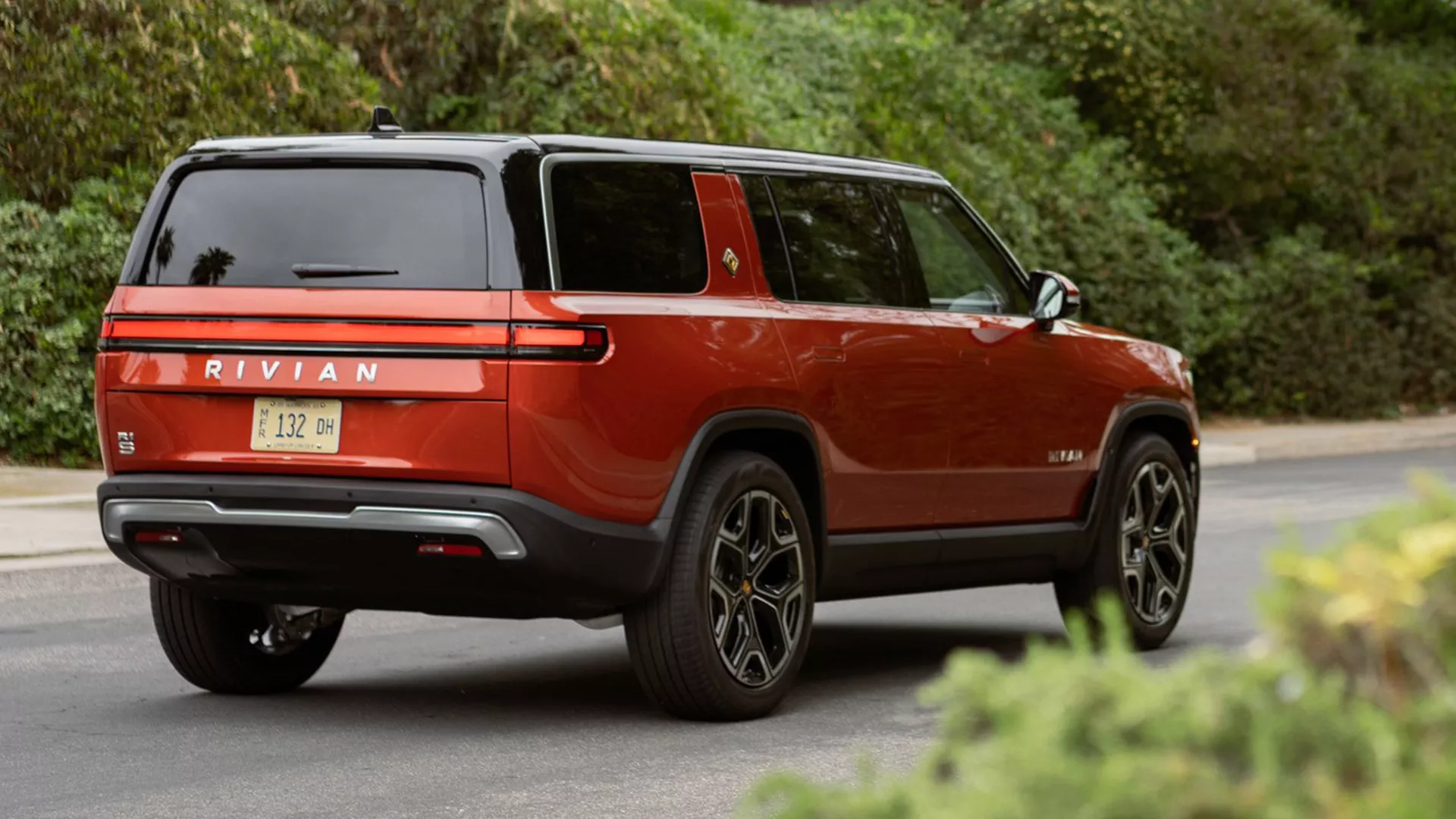
Rivian has also updated the software, drive units, and battery packs used in its R1 vehicles, with battery modules now coming in one piece instead of separate parts. Additionally, the new R1 units are lighter, partly due to substantially fewer wires.
“The design of the parts and the design of the plant facilitate making the vehicle easier to build,” Scaringe noted.
These changes have reduced necessary labor time and improved assembly time by around 30 percent. Rivian VP of Manufacturing Tim Fallon expressed optimism that these changes could lead to profitability.
See also: Rivian CEO Expects Stronger EV Growth with New Models Despite Slowdown

“All of that together leads to us being able to get to our path to profitability and be gross-margin positive,” Fallon said.
Rivian reported a loss of $38,784 per vehicle delivered in the first quarter, down from the previous quarter’s figure of $43,372.

